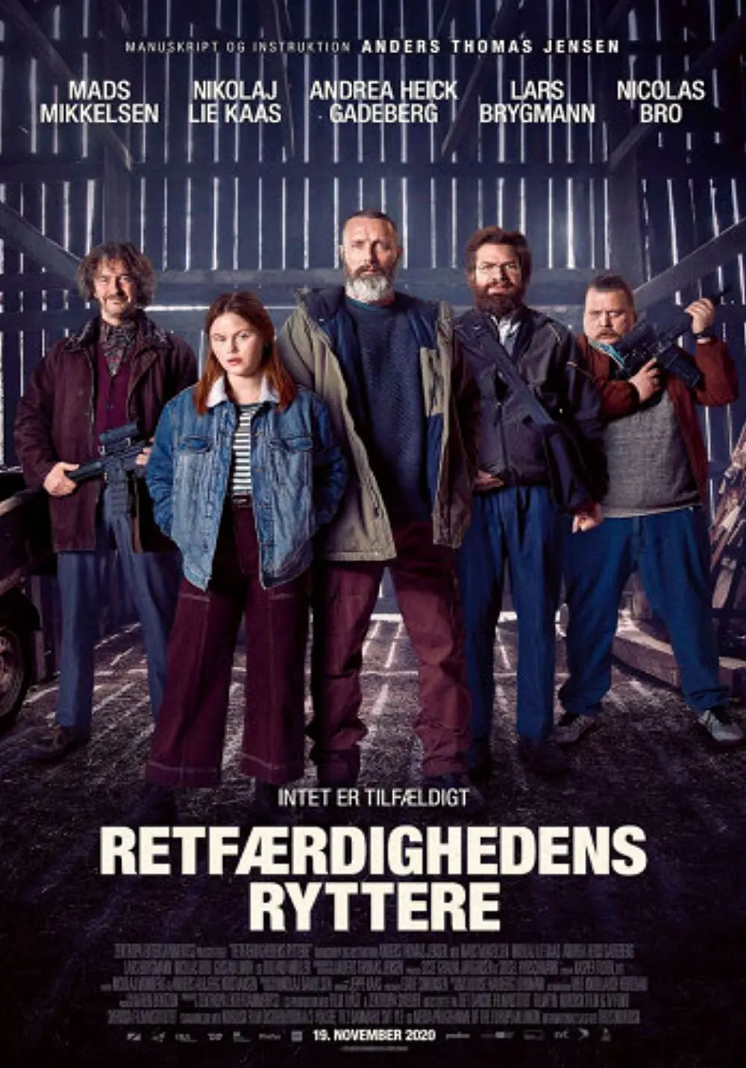Kunsten at græde i kor The Art of Weeping” Seriously Knocks the Absurd

The art of weeping is not beautiful, but it pierces the eardrums, buries the calm, makes the shadows of the swaying trees, the waves of wheat dancing with the wind, the dandelions chasing the white clouds gloomy, in short, that art shrouds all brightness in a gloomy atrophy.
There is the story of a family who lived in the countryside of Jutland in the 1970s, told by Alan, an eleven-year-old boy of the third generation. Once, Alan had a crybaby grandfather who was cowardly, cranky, authoritarian, and often threatened with death, and grandpa and grandma had Alan’s aunt, Alan’s father, and Alan’s uncle. Alan does not know what wounds his father suffered when he was growing up, but in his subconscious he may have sensed that his father’s formative years were as full of fear and sadness as his.
In fact, the movie moves forward from a family gathering at the dinner table to reveal a “prequel” to Allen’s unknown family tragedy. At that time, his father Henry and other siblings as victims of everything that Alan and her sister experienced, but then his father Henry just became another perpetrator of these tragedies.
It must have gotten worse. Because Henry defiled his daughter, in the name of “suicide”; Henry twisted the mind of his youngest son, or in the name of “suicide”, Henry indirectly took the lives of two people, still in the name of “suicide In the name of “suicide”. But the viewer can always feel the innocent Henry, he is like missing the formative years, doing whatever he wants to do as a capricious big kid, he wants, can not get, will have to play the trick to play suicide to scare people.
After watching the movie “The Art of Crying”, I naturally thought of Jules Lerner’s words: “The art of just “crying”. To think is not enough, you must think of something. This is perhaps the benchmark that distinguishes humans from animals. Those “virtual” moral code; the seemingly lawful order and norms; the day and night battle between life and death propositions, these high hanging mirrors, even if weak, always shine the light on the hundred states of human beings and try to save their souls when they can do something about it.
I have always loved movies, it seems that what I love is not the simple and mysterious screen quality of the film, nor the technical shots that will eventually die on the shore of a frame with a note, I am exceptionally fascinated by the one or two hours of storytelling, I do like to outline the human totem of the story seems to speak and not say. Each time, it was as if I had found a familiar yet unfamiliar mask, and in the big world, it is obviously not possible to find such pleasure in reality.
I can imagine the movie “The Art of Crying” winning 13 awards at various international film festivals since its premiere in Toronto in 2006, but still the audience left in anger halfway through the screening. If this sad but happy work of child abuse is not shot in this way, but in the knife-edge style of “Sin in the Field”, I am afraid that not only the consequences of exit, the possibility of throwing shoes also exists. The cold humor of Europeans is often shown in the seemingly tolerant irony and ridicule, which is also the consensus of fans who like European films.
When I say “child abuse”, it is only a certain perspective of the film. It has its roots in a distorted patriarchal consciousness, while mapping a certain social form that runs counter to civilization, it also involves the exploration of psychopathology, the questioning of ethics and morality, and the dissection of growing up in a family. Each member of the family suffers from the pressures of life and mental pain, while continuing their harmonious lives with indifference or ignorance or connivance, or what we call “stability”. Because at the beginning of the movie, we hear the narration of Alan: As long as the father does not cry and does not commit suicide, their family is as ordinary and happy as other families.
This narration, now that I think about it, feels really weird and scary. The unintentional “enablers” in the human world do not start in this way. The violence and brutality of the cross-execution is easy to resist, but if you encounter such as the father in the play – Henry begging self-harm type of blackmail, I am afraid to borrow the words of Le Ner to consider. The result of proper consideration is that, like Henry’s eldest son, Argus, decidedly choose their own lives.
Perhaps the absurd act of placating his father, done by his sister Sanneh and brother Alan as minors, is ludicrous and hurts the viewer mercilessly, because the purveyors of the disease are adults. These two children made a mistake, can only be seen as a pathetic way for the children to save themselves, everything or from the goodness of cherishing family and blood, and to restore peace to the family self-cure “fear” of micro-pathological psychology. The film’s profoundness is also here, the treatment of “connivance” is a technique that has to be chosen to reflect reality.
Of course, the worst crime is naturally to die all day long, to die to gain the sympathy of the family, attention, generous treatment of the father Henry. Obviously, Henry is the most serious psychopath, his uncontrollable low emotions become his weapon to ravage the family members, he is not completely out of his mind, otherwise he repeatedly feigned suicide behavior will not look so funny. We in front of the screen with Henry’s wife can see, Henry never have the courage to kill themselves. But unfortunately, Sanneh and Alan know too late.
I have to write a little about Henry’s wife, she is indeed the victim of marriage, but the title of “great mother”, she only used sleeping pills to isolate the grief in her numb world, but failed to protect their children, I recognize the helplessness of this woman, but also can not forgive her cowardice. Her indifference naturally became the channel to let the tragedy escalate.
The eleven-year-old boy Alan is such a three-dimensional vivid character, his brooding mysterious inner is the adult can not explore the place, which is regrettably sad. Often the reality will be added to these childish souls, as a child grows into a monster that parents do not like after being abandoned to be accountable for being turned into a bad person, for adults, think about this is the most cunning blame shifting. The most charming portrayal of the play is also on the character of Alan, if the father Henry is the evil man who did all the ridiculous things, little Alan is the driving force behind these things, sister Sanneh’s words say it all: for the sake of father happy, you want to get everyone killed? However, Alan’s original sin belongs to the family.
I don’t want to blame Little Alan, in fact, I don’t want to blame anyone in the play, including Alan’s father, Henry, mental illness has too complicated a trace back. Alan’s aunt’s little farce of fraudulent death time and again side-steps the theme of the story, any person needs the love, care and attention of others. Henry does, and so does little Alan. Although Alan worshiped his father with a childish heart and wanted to please his father to make peace at home, his heart’s desire must be to love and be loved. At the first funeral, Alan held his father’s hand and felt his father’s need for him, and later he imitated his sister in her underwear to go downstairs to comfort his father, amplifying the mutable cells of human spiritual desire in an extremely delicate way.
Putting aside the horror of sinfulness. It is not easy to say that we try to creep from survival to life, the mire beneath us and the thorns in front of us will swallow us up if we are not careful, this is by no means alarmist. Quit being domineering and arrogant, because no one in this world is born to be humiliated. The reason for this is that if you don’t get rid of the warts, you will have a place to go. However, we also sigh to ourselves. How much we long to be loved, how much we see ourselves as weak, how much we fear harm, and how much we can enjoy the pity of others without end, but we must first hold out a brave and enthusiastic heart to the sun, not the darkness.




